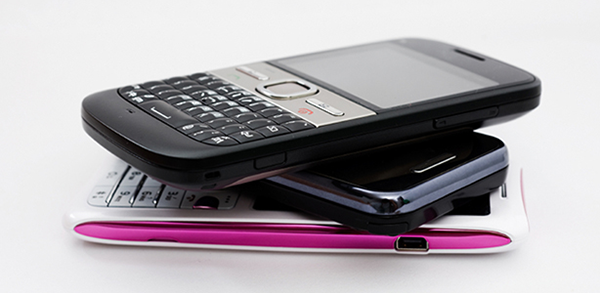
By Veena Clay January 5, 2015
The recent release of the new iPhone 6 has everyone chatting, reviewing, rating and comparing. Lines for the latest addition to Apple’s family of mobile devices have wrapped around the corners of city blocks all over America. As with so many other electronic devices, it’s out with the old and in with the new.
However, one thing not being openly considered is what is happening to everyone’s old phones. For those toying with the idea of idly tossing their old phone into the nearest trash bin, it may help to know that in some states doing so could be illegal.
For those who are on the environmentally conscious side, you may be on the hunt for more information about cell phone recycling. While recycling is not required in every state, it is well known to be a convenient alternative to the trash bin, offering exceptional benefits to the environment and communities on local, national and global scales.
Cell phone proliferation is ubiquitous
It is not hard to notice that cell phones, especially smartphones, are proliferating at shockingly torrential rates. Only some of us can still remember the days of the dialup phone and the bulky precursors of the modern mobile. These outdated inventions have now taken their places in the past as their technologically advanced counterparts become increasingly ubiquitous.
What this means is that all around the world, more and more cellular phones are being manufactured. Likewise, an equal number of phones are being discarded. No problem, some would say. Indeed, when a newer version graces the shelves, consumers are conditioned to own the latest version of a device as soon as possible.
Disposal of previous devices, however, is typically either put off for another day or performed in a way that causes negative consequences for the environment.
Negative consequences of discarding your cell phone improperly
Many may not know it, but cell phones contain a number of materials that are toxic to the environment. As long as cell phones remain intact, the harmful contaminants are well contained. However, in a landfill where phones can be crushed and cracked, the chance of soil, air and even groundwater being contaminated is extremely high.
That is where cell phone recycling can be of great benefit. In fact, cell phone recycling involves a number of benefits and nuances that consumers should know about. This information is key to influencing behaviors in a positive way such that more consumers become regular recyclers, thus easing the environmental burdens of our current e-waste crisis.
1. America recycles cell phones at low rates.
According to the EPA, in 2009 the cell phone recycling rate was about 8%. This means that only 8% of the millions of cell phones manufactured were recycled. This rate has improved over the past five years, however. Currently, of the 130 million cell phones discarded in 2013, 11% percent were recycled.
Experts cite lower levels of awareness about cell phone recycling and a simple lack of convenience as part of the issues surrounding the low levels. Unfortunately, these numbers have not improved so much that we are in the clear. There is still an imperative need for more consumers to recycle mobile phones in the U.S.
2. It is possible to donate your cell phone.
As a viable alternative to tossing your cell phone in the trash bin, where it could eventually find its way to a local landfill or incinerator, consider donating an old phone. Nonprofit organizations, such as the National Coalition Against Domestic Violence, participate in partnerships with refurbishment programs and recycling centers as a way to raise funds for daily operations, outreach and programming.
3. Cell phone recycling may involve collecting precious metals such as gold and silver.
It is quite surprising to think that the mobile device you carry with you everywhere contains a number of precious metals inside. It’s true. Gold, silver and even cadmium can be found in small amounts in cell phones and other electronic devices.
This explains why average citizens in developing countries like India, China and Africa recycle cell phones without the assistance or guidance of a recycling center or formal training. It is a lucrative way to earn money for some of the poorest in the world. For instance, in India, more than 95% of electronics are recycled in informal sectors. However, many of the methods used are extremely harmful to the local environment, adversely affecting rivers, streams, farmland and air quality.
Today, a number of countries like Japan and South Korea are investing into the rare earth recovery industry. This involves recovering rare earth metals from electronic devices and using them to cut costs of industrial devices such as magnets, solar panels and lithium-ion batteries. The industry is growing at a remarkable rate as demand for rare earth metals increases around the world.
4. Some recycling centers offer buyback programs.
Before tossing your old phone, check with your local retailer or online to see if a buyback program is available. If the phone is in good shape and still useful, buyback businesses can refurbish them and offer them for sale. These businesses are willing to buy back your phone for the chance to do so. Another great resource for buyback programs is your local recycling center.
5. Many retailers will collect old phones for recycling.
Often, it is possible to purchase a new phone and safely discard the old one all in one transaction. Retail stores like Best Buy, Sprint, AT&T and others offer free collection of old phones, and can ensure that the phones end up at a reliable recycling center rather than in the local landfill.
Recycling your cell phone has never been easier
Recycling your old cell phone has never been easier. With a number of options available, it is up to you to decide the best method for properly disposing your old phone in a way that benefits the community and the environment.